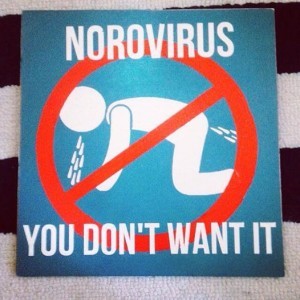I miss Bill Keene. He used passed away a couple of years ago, but would often email when he agreed or disagreed with stuff I wrote. in 2012, he sent me a message about norovirus making the case for environmental transmission,
‘when norovirus-infected people vomit, they shower their surroundings with an invisible fog of viruses—viruses that can later infect people who have contact with those surroundings and their fomites. In this case these were was a reusable bag and its contents—sealed packages of Oreos, Sun Chips, and grapes— but it could just have easily been a disposable plastic bag, a paper bag, a cardboard box, the flush handle on the toilet, the sink, the floor, or the nearby countertops.’
That was his assessment in investigating an outbreak.
According to Science Daily, a study by Arizona State University applied mathematicians in Royal Society Open Science, tracked the different ways that norovirus spreads, and which one infects the most people. They refined their model by fitting it to data from a real-world outbreak — in this case, the daily number of cases among crew and passengers over the course of two cruises.
“The data from the two groups gave the model the sensitivity it needed to be able to figure out the relative roles of infected surfaces and people in transmitting the illness,” said Sherry Towers, the study’s lead author and professor at the Simon A. Levin Mathematical, Computational and Modeling Sciences Center.
“The findings indicate that, although environmental transmission by itself is enough to keep an outbreak going, person-to-person contact is the primary mode of transmission,” Towers said.








